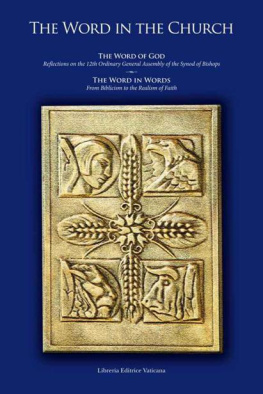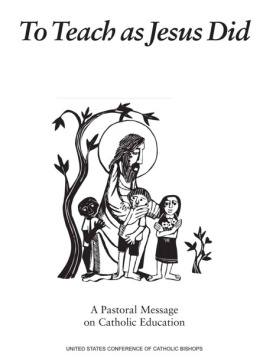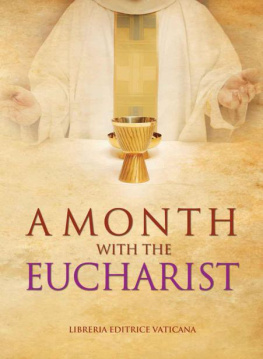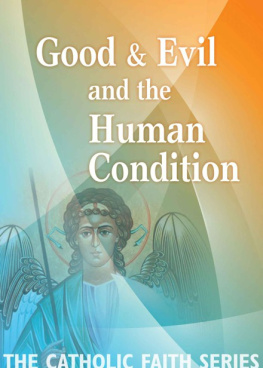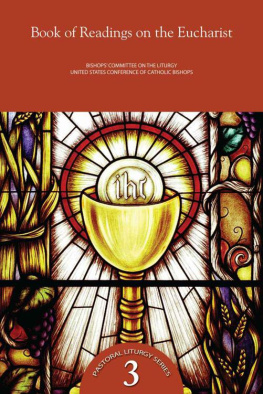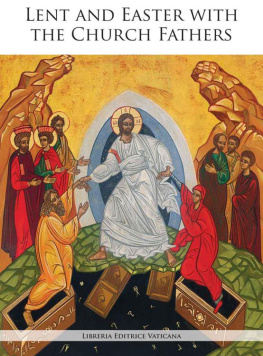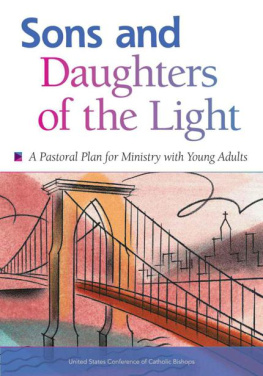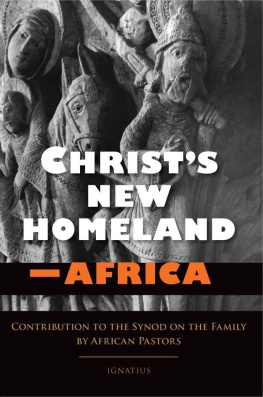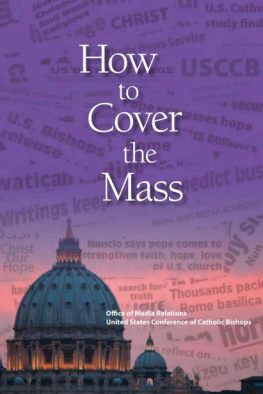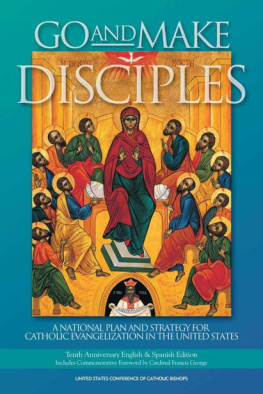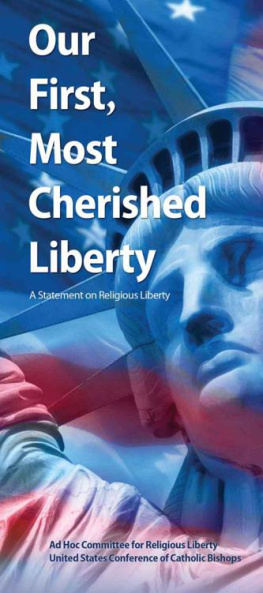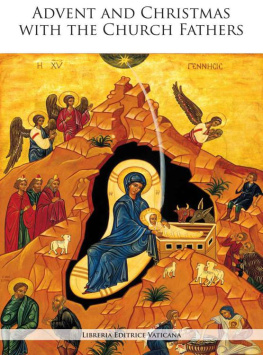THE WORD
IN THE CHURCH
THE WORD OF GOD
Reflections on the 12th Ordinary
General Assembly of the Synod of Bishops
Nikola Eterovi
THE WORD IN WORDS
From Biblicism to the Realism of Faith
Speeches of Benedict XVI to the Synod of Bishops
Lorenzo Leuzzi
Preface by Cardinal Agostino Vallani
Libreria Editrice Vaticana
United States Conference of Catholic Bishops
Washington, DC
CONTENTS
THE WORD OF GOD
Reflections on the 12th Ordinary General Assembly of the Synod of Bishops
THE WORD IN WORDS
From Biblicism to the Realism of Faith
THE WORD OF GOD
REFLECTIONS ON THE 12TH ORDINARY
GENERAL ASSEMBLY OF THE
SYNOD OF BISHOPS
THE EXPERIENCE OF A SYNOD
It is written: / One does not live by bread alone, / but by every word that comes forth from the mouth of God (Mt 4:4). It is with these words, taken from the Book of Deuteronomy (see Dt 8:3), that the Lord Jesus overcomes the temptation by the Devil, who had enticed him to turn the stones in the desert into bread (see Mt 4:1-4; Lk 4:1-4). Jesus response therefore highlights the primacy of the Word of God over daily breaddespite its necessity for survivalin the lives of believers. Like the Son of God, the faithful are also called to listen to the voice of the Father and to carry out his will through the obedience that comes from faith. This disposition applies not only to individuals but also to the Church, the community of believers, gathered together by the Holy Spirit to form one body in Christ (see 1 Cor 12:27). In fact, the Church has lived since her birth on the bread of the Word, which is present in a particular way in the sacraments, and on the Eucharist, which is her source and summit.
The 12th Ordinary General Assembly of the Synod of Bishops on the Word of God in the Life and Mission of the Church, which took place at the Vatican October 5-26, 2008, reaffirmed the importance of the Word of God. It was a significant event that allowed for clarification on some important aspects affecting the life of the Church in recent years. The preparation and celebration of the Synod and the application of its conclusions were a magnificent gift of divine providence that brought all of the participants together in the grace of the Holy Spirit, and particularly the members of the 11th and 12th Ordinary Councils of the General Secretariat of the Synod of Bishops. Under the wise guidance of the Holy Father Benedict XVI, they had the task of preparing the Synod on the Word of God and then following through with the directions of the Synod Fathers. The ecclesial service of the Councils is coordinated by the general secretary of the Synod of Bishops. Therefore, he too allowed himself to be guided by the Spirit of the Risen Lord in rediscovering the Word of God, which the Sower continues to sow even today (see Mk 4:1-20; Mt 13:10-23; Lk 8:1-15). In fact, the present publication gives witness to this. It is a collection of reflections on a topic that is very much alive throughout the Church today: the heard, contemplated, and celebrated Word of God to be proclaimed for all, whether near or far.
It was therefore an important experience that would be beneficial to share with others in the Church community, particularly with those who, despite not having participated personally in the Synodal Assembly, are open to welcoming its spirit and acting on the recommendations of the Synod Fathers. They hope, together with the Holy Father, that rediscovering the Word of God may lead all Christians to deepen their commitment to the journey of holiness, fostering renewed energy for evangelization and human enrichment.
***
The present book attempts to present several of my speeches, which I gave at various locations during the year 2009 and have since edited, to a wider audience. They address the topic of the 12th Ordinary General Assembly of the Synod of Bishops. The opportunities of giving these speeches allowed me to present several of the fundamental ideas of the Synod, to convey the distinguished Magisterium of the Holy Father Benedict XVI, and to provide some of my own thoughts that I developed through the privileged experience of coordinating the work of the Synod.
The first chapter, The Word of God in the Synodal Teachings of Pope Benedict XVI, aims to describe the active synodal participation of the president of the Synod of Bishops, who provided the whole Church with rich and enlightening guidance. Such an approach makes perfect sense considering that the theme of the Word of God is one of the fundamental trademarks of his pontificate. In fact, the Holy Father made it clear in the homily he gave at the Mass marking the beginning of his pastoral ministry that his true leadership platform would be none other than listening to the Word of God together with the entire Church and allowing himself to be guided by the will of his Lord Jesus Christ, the incarnate Logos. He is fulfilling these words in carrying out his mission as the Universal Shepherd of the Church. The experience of the Synod gave Pope Benedict XVI a unique opportunity to express his love for the Word of God and to develop reflections born of listening to and meditating upon the Word, which alone remains forever (see 1 Pt 1:25). It therefore seemed fitting to present the teachings of the Holy Father during the Synodal Assembly on the Word of God in the first chapter as a sort of summary of his thoughts on the subject. They are magnificent reflections on the Word of God as it is lived in the Church: the Word animates her every theological, exegetical, spiritual, pastoral, ecumenical, and governmental activity, yet finds a most privileged place of expression in liturgical celebrations and especially the Eucharist.
Together with the Synod Fathers, His Holiness Benedict XVI emphasized the primacy of liturgical celebrations in understanding the profound meaning of the Word of God, which should be not only informative but also performative. For example, the three criteria necessary for a proper comprehension of the Sacred Scriptures are applied in a meaningful way during the eucharistic celebration. We listen to the Word of God with an inner disposition of faith, with the same Spirit in which it was written. The unity of the entire Bible then becomes apparent: during the Sunday eucharistic celebration in particular, two readings from the Old Testamentgenerally the first reading and the Responsorial Psalmand two from the New Testamentnormally an excerpt from one of the letters of St. Paul or another apostle and one from the Gospelare presented to the faithful. Finally, the Word of God is received and experienced in the living Tradition of the Church that has its privileged expression precisely in the liturgy.
The second chapter, The Year of St. Paul as the Backdrop for the Synod on the Word of God, discusses how the Synod was influenced by the Pauline Year inaugurated by the Holy Father Benedict XVI in celebration of the two thousandth anniversary of the birth of the Apostle to the Gentiles. Pope Benedict XVI illustrated the person and the works of St. Paul, a slave of Christ Jesus, called to be an apostle and set apart for the gospel of God (Rom 1:1), on many occasions and particularly during his Wednesday audiences. It was providential that the year of the Synod coincided with the Year of St. Paul. The two events obviously interpenetrated one another. The Pauline Year constituted one more reason why the Gospel, which is the power of God for the salvation of everyone who believes (Rom 1:16) announced by St. Paul (see Rom 16:25), affected the work of the Synod. Furthermore, the Synod of Bishops highlighted the modern relevance of St. Pauls message and pointed to him as a tireless preacher of the Word of God and a zealous missionary to the ends of the earth (see Acts 1:8).

